How to Self Study Abstract Algebra
There are three big parts of mathematics: geometry, analysis, and algebra. In this insight, I will try to give a roadmap towards learning basic abstract algebra for self-study. This includes the study of groups, rings and fields, and many other structures.
Table of Contents
Prerequisites
The requirements for self-studying abstract algebra are surprisingly low. Basically, you should be acquainted with most pre-calculus mathematics, and you should have a basic idea of what proofs are and how they work.
For High school mathematics, see my previous insight: https://www.physicsforums.com/insights/self-study-basic-high-school-mathematics/
For proofs, I recommend the following books in no particular order:
Velleman “How to prove it: a structured approach” http://www.amazon.com/How-Prove-Structured-Approach-2nd/dp/0521675995
Bloch’s “Proofs and fundamentals: a first course in abstract mathematics” http://www.amazon.com/Proofs-Fundamentals-Abstract-Mathematics-Undergraduate/dp/1441971262
Hammack’s “Book of proof” http://www.people.vcu.edu/~rhammack/BookOfProof/
These books will teach you the fundamentals of proof-based mathematics, and they will teach you the basic notations and assumptions of set theory. Both will be very necessary for algebra.
Abstract algebra for high school students
If you’re in high school and haven’t taken calculus yet, then you can still do a very decent amount of abstract algebra. The book I recommend for this purpose is “A book of abstract algebra” by Pinter. https://www.amazon.com/Book-Abstract-Algebra-Second-Mathematics/dp/0486474178
This book will take you right through group theory, basic number theory, ring theory, vector space theory, field theory, and apotheosis Galois theory. The chapters in the book are pretty short and the exercises are very good. In fact, this book is worth getting for the exercises alone, which aren’t necessarily hard, but mostly quite instructive.
A first course in abstract algebra by Anderson and Feil
https://www.amazon.com/First-Course-Abstract-Algebra-Groups/dp/1584885157
If you’re serious about being a mathematician, then this is a very good book to go through. The book treats the usual suspects of abstract algebra in a very pedagogical way. Every chapter contains short (and easy) exercises within the text, then at the end of every chapter, there is a set of rather easy warm-up exercises, followed by more tough exercises. The selection of exercises is very good.
The first part of the book does a pretty rigorous study of the integers and of polynomials. The idea here is to show that these two structures are pretty alike. This sets the tone for the rest of the book where this likeliness is studied in detail. Also, modulo n is discussed.
The second part deals with ring theory which is discussed in detail. Many examples are provided, but the focus is definitely on unique factorization theorems.
The third part deals with group theory. The usual suspects here are treated, and we even reach the famous Sylow theorems. Groups are introduced as very geometric objects which describe symmetries in geometry.
The fourth part deals with fields and Galois theory. The ultimate goal is to prove that some fifth-degree polynomial equations are unsolvable using radicals. This is done by appealing to the very elegant fundamental theorem of Galois theory.
Differential algebra
The unsolvability of polynomials is very well-known. A rather less known result is Liouville’s theorem which deals with whether we can analytically solve integrals. This is the focus on differential algebra. If you worked through Anderson and Feil, then you might be interested in proving this very neat result. A very good account is given here: http://math.hunter.cuny.edu/ksda/papers/rick_09_02.pdf
Of course, more has been done in differential algebra. Indeed, differential Galois theory deals with which differential equations are analytically solvable.
Representation and character theory
This is a very rich and important field of study. It essentially deals with representing groups and other structures as matrices. It has very deep links with Fourier analysis and it is applicable to pure group theory, probability theory, graph theory but also mathematical physics. Most modern accounts do representation theory with modules and algebras. However, I think it is important to see the links with Fourier analysis. For that reason, I highly recommend the book “Representation theory of finite groups” by Steinberg. https://www.amazon.com/Representation-Theory-Finite-Groups-Introductory/dp/1461407753
Basic algebraic geometry
You can’t have a good grasp of abstract algebra without seeing at least some algebraic geometry. Algebraic geometry offers a very different perspective on ring theory. If you want to do algebraic geometry, then I do recommend going through some of the books in my geometry recommendations: https://www.physicsforums.com/insights/self-study-geometry-part-pure-geometry/ Especially the books by Brannan and Bennett are recommended.
A very good first book on algebraic geometry is “Ideals, varieties, and algorithms: an introduction to computational algebraic geometry and commutative algebra” by Cox, Little, and O’Shea. The main techniques of this book are Grobner bases and elimination theory. The book treats affine and projective algebraic geometry, including invariant theory and dimension theory. Very neat applications are given such as robotics and automatic theorem provers. Of course, standard theorems such as Bezout’s theorem are present too.
Advanced education and experience with mathematics

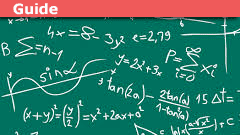
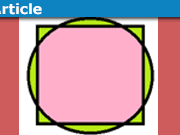
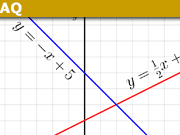

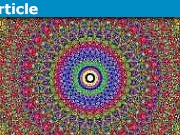
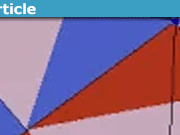

[QUOTE="bacte2013, post: 5530060, member: 495139"]Thank you for the valuable information! How is Steinberg compared to Serre? I need to study the basics of representation theory before diving into the analytic number theory.[/QUOTE]I don't know. I know nothing about your goals, your preferences, your background knowledge, etc. The books are clearly very different though. Serre is a graduate text and not an easy one at that. Steinberg is written with undergrads in mind.
Thank you for the valuable information! How is Steinberg compared to Serre? I need to study the basics of representation theory before diving into the analytic number theory.
Great addition to the series!
Great article Micro!